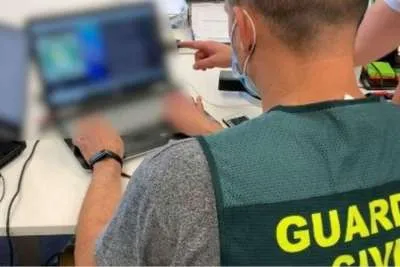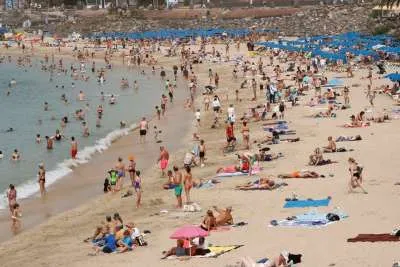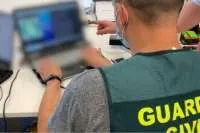Ex-pats being warned they may have to self-isolate in UK even if vaccinated
- 30-10-2021
- National
- Canarian Weekly
British travellers who live abroad and have been vaccinated in an EU or Schengen zone country are being warned that they may still have to self-isolate in the UK if they come in contact with someone who has tested positive, as the British track and trace service does not recognise them as being fully vaccinated.
After initially refusing to recognise any Covid vaccine administered outside the UK, the British government now counts anyone fully vaccinated in an EU or Schengen zone country as ‘fully vaccinated’ for travel purposes, meaning that those fully vaccinated can enter the country without having to quarantine. However, once in the country, if they are alerted or contacted by the Test and Trace service as a contact case, they will have to self-isolate for 10 days.
People fully-vaccinated in the UK by the NHS are exempt from the requirement to self-isolate if they come in contact with someone positive, but the Test and Trace programme refuses to recognise any vaccines administered outside the UK, even if they are the same recognised vaccine, meaning that anyone vaccinated in the EU faces a 10-day self-isolation period, including ex-pats in Spain and the Canary Islands travelling to the UK.
The Department for Transport in the UK says that: “If a person has been vaccinated abroad they are required to self-isolate if they test positive or have been identified as a close contact of someone who has tested positive, even if they have received a vaccine equivalent to those approved by the MHRA for use in the UK.”
“Our domestic verification process currently only recognises the vaccination status of individuals who received their vaccine in the UK. We continue to keep this under review.”
The UK government rules also state that anyone who has Covid symptoms should self isolate for 10 days unless they have had a negative Covid test, and this applies to everyone, including people who were fully vaccinated in the UK or abroad.
New cases in the UK are currently running at an average of about 50,000 a day, by far the highest in western Europe, so coming into contact with an infected person while on a visit to the UK is not unlikely.
What are the rules of self-isolation in the UK:
If you have been informed that you are a contact of a person who has had a positive test result for Covid-19, you must stay at home and self-isolate. Your isolation period includes the date of your last contact with the person who had a positive test result and the next 10 full days. This means that if, for example, your last contact with them was at any time on the 15th of the month your isolation period ends at 23:59 on the 25th.
Self-isolation means you must stay at home and not leave the house. Do not go to work, school, or public areas, and do not use public transport or taxis.
Do not go outside even to buy food or other essentials, except in certain specific circumstances. Any exercise must be taken within your home, garden or private outdoor space.
If you have a negative PCR test result during your 10 day isolation period, you must continue to self-isolate as you could still become infectious and pass the infection onto others. You must stay at home for the full 10 days to avoid putting others at risk and are only allowed out again when Test and Trace allow it.
You could be fined if you do not stay at home and self-isolate. It is also an offence to knowingly provide false information about your close contacts to NHS Test and Trace. Failure to comply with these requirements may result in a fine of up to £10,000.
For more details visit the Gov.uk website by clicking here>>
Other articles that may interest you...
Trending
Most Read Articles
Featured Videos
TributoFest: Michael Buble promo 14.02.2026
- 30-01-2026
TEAs 2025 Highlights
- 17-11-2025


























































